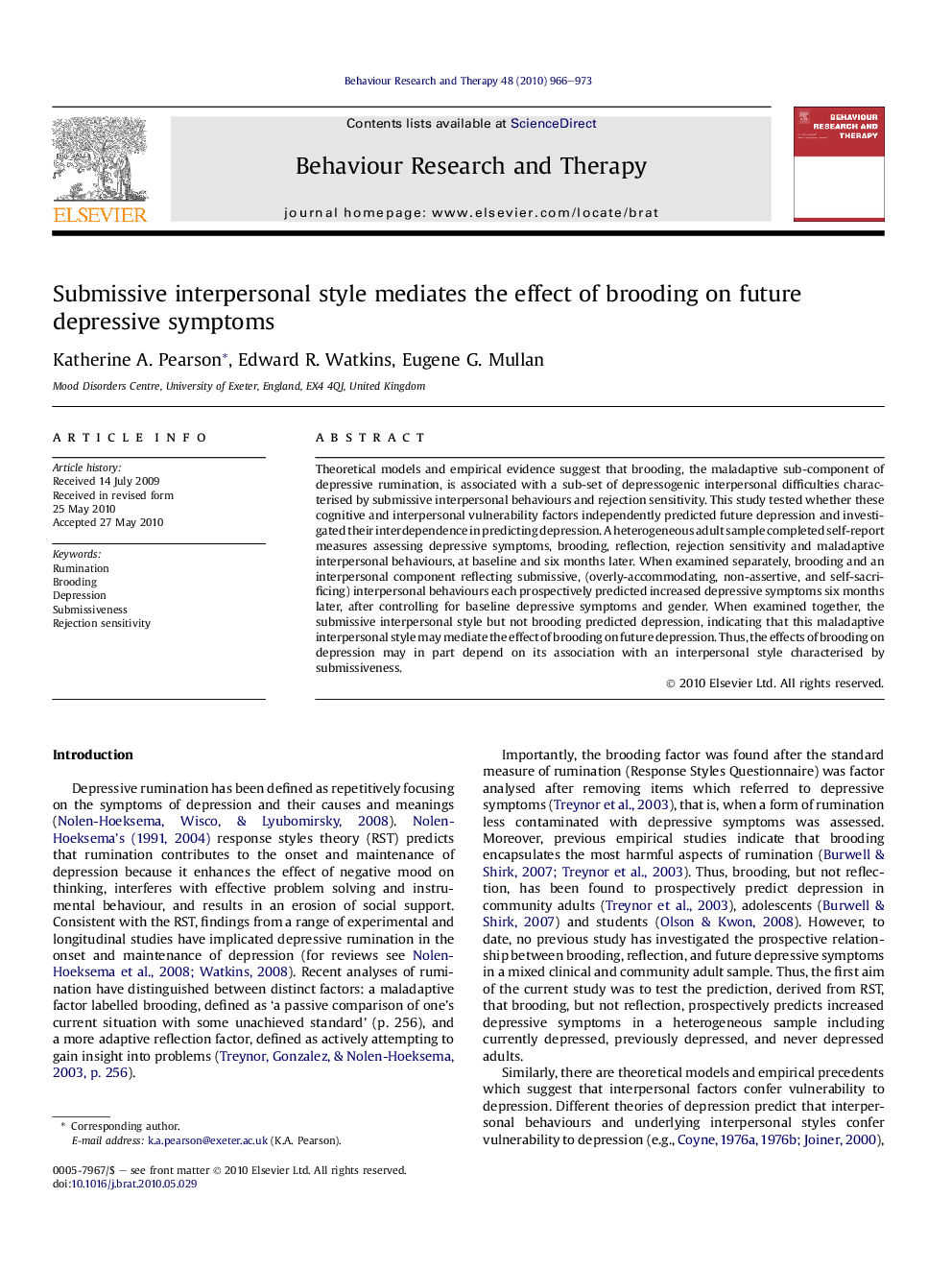| Article ID | Journal | Published Year | Pages | File Type |
|---|---|---|---|---|
| 10444652 | Behaviour Research and Therapy | 2010 | 8 Pages |
Abstract
Theoretical models and empirical evidence suggest that brooding, the maladaptive sub-component of depressive rumination, is associated with a sub-set of depressogenic interpersonal difficulties characterised by submissive interpersonal behaviours and rejection sensitivity. This study tested whether these cognitive and interpersonal vulnerability factors independently predicted future depression and investigated their interdependence in predicting depression. A heterogeneous adult sample completed self-report measures assessing depressive symptoms, brooding, reflection, rejection sensitivity and maladaptive interpersonal behaviours, at baseline and six months later. When examined separately, brooding and an interpersonal component reflecting submissive, (overly-accommodating, non-assertive, and self-sacrificing) interpersonal behaviours each prospectively predicted increased depressive symptoms six months later, after controlling for baseline depressive symptoms and gender. When examined together, the submissive interpersonal style but not brooding predicted depression, indicating that this maladaptive interpersonal style may mediate the effect of brooding on future depression. Thus, the effects of brooding on depression may in part depend on its association with an interpersonal style characterised by submissiveness.
Related Topics
Health Sciences
Medicine and Dentistry
Psychiatry and Mental Health
Authors
Katherine A. Pearson, Edward R. Watkins, Eugene G. Mullan,
